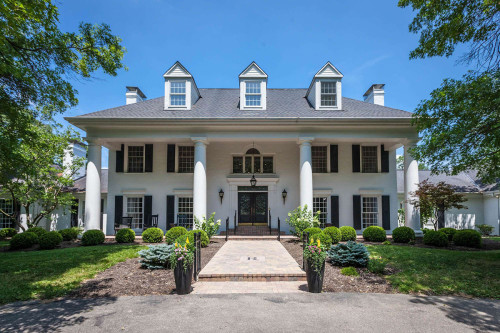
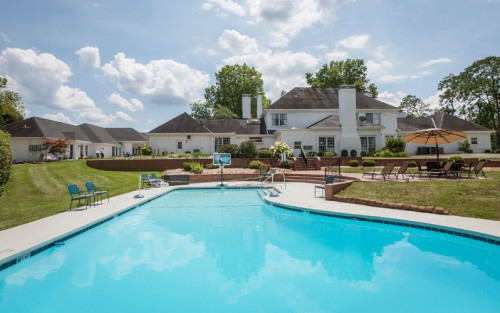
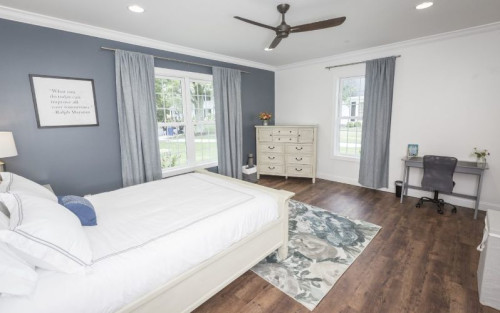

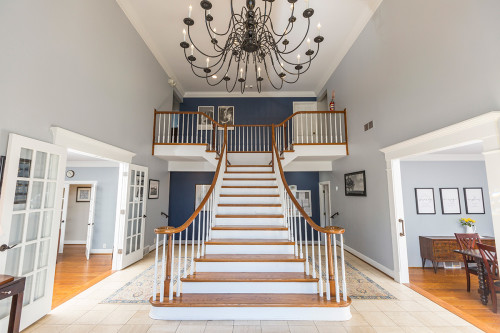




The Ridge
Verified Center
This provider's information has been quality-checked by Recovery.com's Research Team for accuracy and completeness, including center verification through appropriate third-party organizations.
Treatment Focus
This center treats substance use disorders and co-occurring mental health conditions. Your treatment plan addresses each condition at once with personalized, compassionate care for comprehensive healing.
Primary Level of Care
Offering intensive care with 24/7 monitoring, residential treatment is typically 30 days and can cover multiple levels of care. Length can range from 14 to 90 days typically.
Treatment Focus
This center treats substance use disorders and co-occurring mental health conditions. Your treatment plan addresses each condition at once with personalized, compassionate care for comprehensive healing.
Primary Level of Care
Offering intensive care with 24/7 monitoring, residential treatment is typically 30 days and can cover multiple levels of care. Length can range from 14 to 90 days typically.
Provider's Policy
We accept most employer-based group commercial insurance plans (such as Custom Design Benefits) and most major carriers. Once you submit your insurance details, we can verify your benefits and explain your coverage. We do NOT accept Medicaid, Caresource, Molina, Paramount, Buckeye, or state-funded insurance. We can work with you to explore a self-pay option if you don’t have insurance coverage.
The Ridge
The Ridge
About The Ridge
The Ridge treats drug and alcohol addiction with personalized, evidence-based care. Their 51-acre property helps clients heal in peace, with a 4:1 staff-to-client ratio for attentive care. The Ridge offers residential treatment, a partial hospitalization program (PHP), an intensive outpatient program (IOP), outpatient care, and a 72-hour One-Bite (treatment to avoid formal disciplinary action by a medical board) assessment. They cater to professionals with a specialized tech-friendly professionals program for CEOs, lawyers, pilots, business owners, and the like.
Customized And Comprehensive
Clients begin their recovery process with a biopsychosocial assessment, physical evaluation, and addiction assessment. The Ridge then provides medically supervised detox and medication-assisted treatment (MAT) as needed. Their staff includes 2 addictionologists: a psychiatrist and medical doctor. The Ridge’s specialty therapists and counselors facilitate cognitive behavioral therapy (CBT), dialectical behavioral therapy (DBT), motivational interviewing techniques, and case management. After residential treatment, clients can attend a 52-week aftercare program with weekly day or night group therapy—always led by a masters-level clinician.
Dual-Diagnosis Recovery
The Ridge prioritizes comprehensive dual-diagnosis treatment. They include family and loved ones in the process, inviting them on site for educational lectures, therapy, and support groups. The Ridge treats mental health as it occurs with addiction, including disorders like depression, anxiety, post-traumatic stress disorder (PTSD), and bipolar disorder.
Heal in a Serene Environment
The Ridge offers multiple wellness therapies for whole-person care. Clients can enjoy acupuncture, 1.5 hours of indoor or outdoor fitness each day, music therapy, and yoga. Clients can also play volleyball, basketball, pickleball, and more at The Ridge. The Ridge also has a pool, sauna, walking trails, and a fully-stocked pond for fishing. Their chef creates 3 meals a day, catered to clients’ individual needs and preferences. After residential or outpatient treatment, The Ridge gives each client 12 months of aftercare, which includes weekly group therapy, alumni gatherings with guest speakers, and activities.

Highlights from the Center
Highlights
These highlights are provided by and paid for by the center.
Perfect for Professionals
Private Rooms Available
Tech Friendly
12-Step Approach
Center Overview
Treatment Focus
This center treats substance use disorders and co-occurring mental health conditions. Your treatment plan addresses each condition at once with personalized, compassionate care for comprehensive healing.
Joint Commission Accredited
The Joint Commission accreditation is a voluntary, objective process that evaluates and accredits healthcare organizations (like treatment centers) based on performance standards designed to improve quality and safety for patients. To be accredited means the treatment center has been found to meet the Commission's standards for quality and safety in patient care.

The Ridge
Insurance Accepted
Cash Pay Rates
Estimated Cash Pay Rate
Center pricing can vary based on program and length of stay. Contact the center for more information. Recovery.com strives for price transparency so you can make an informed decision.
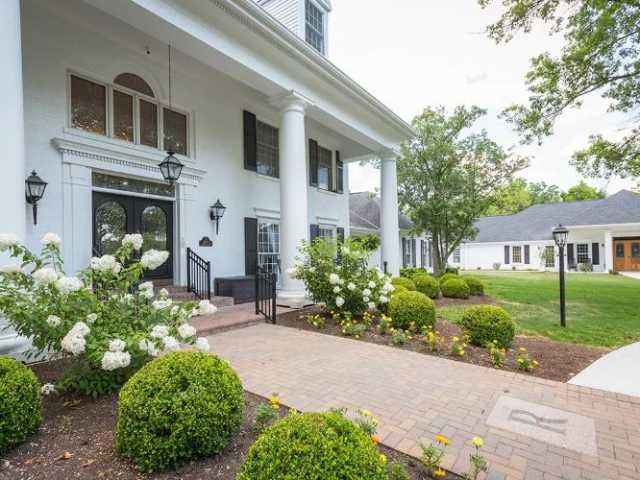
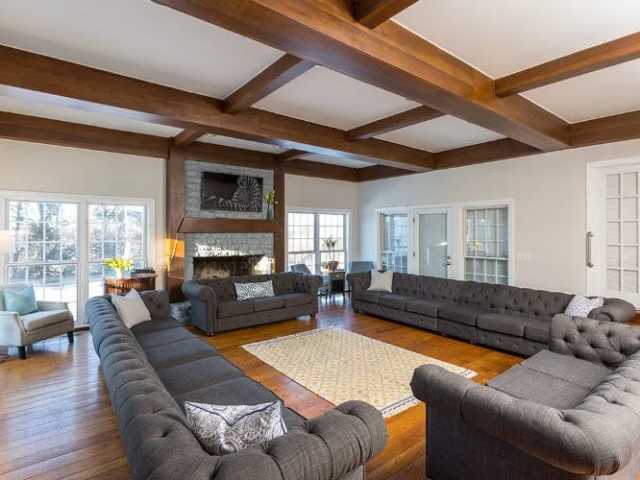


Recovery.com Verified Listing
Recovery.com verified that the name, location, contact information and license to operate for this treatment provider are valid and up-to-date.

Joint Commission Accredited
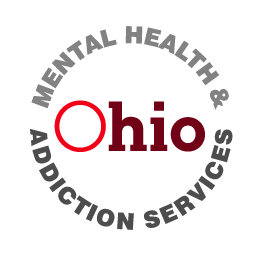
Licensed
Recovery.com is an independent, third-party mental health resource. Verification does not imply endorsement and does not guarantee the quality of treatment services.
Meet Your Care Team

Dr. Wendy Soto
Medical Director
M.D., FASAM, ABAM, DABIM

Stacy Klousiadis
Chief Clinic and Operations Officer

William Stonebraker
Counselor
LCDCIII

Kellie Luley
Outpatient Counselor
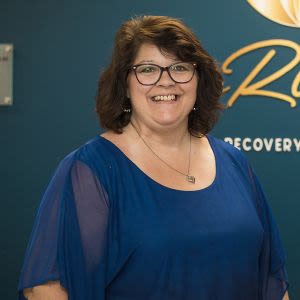
Angela Jones
Aftercare Counseling
LPC, LICDC

Mary Jo Stelzer
Recovery Specialist
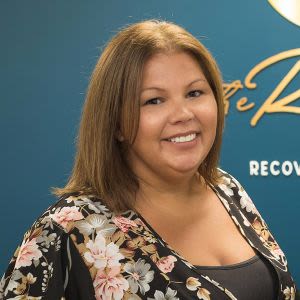
Cheri Higgins
Billing Manager

Tricia Ault
Administrative Support Manager

Brian Wittmer
Admissions and Referral Manager

William Wright
Chef
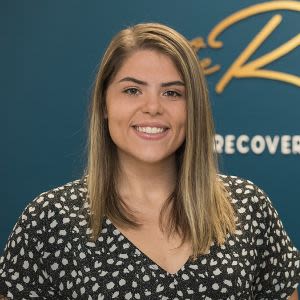
Rebekah Burchfield
Counselor
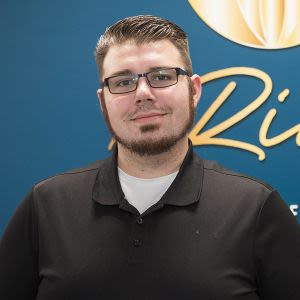
Gavin Noah
Counselor
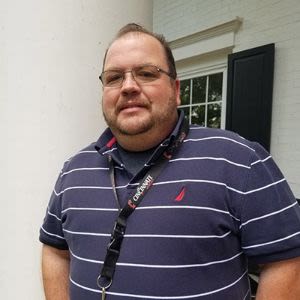
Greg Taleff
RSS Supervisor/Site Manager
Supportive Medication for Recovery
Medication-Assisted Treatment (MAT) is an evidence-based approach that pairs FDA-approved medications with counseling to treat addiction. The medications are used to reduce cravings, ease withdrawal symptoms, or block the effects of substances. More about MAT
Methadone
Naltrexone
Buprenorphine
This center accepts patients receiving MAT prescribed elsewhere for opioid use disorder, but does not provide MAT.
Note: Treatment centers offer different forms of MAT—such as oral tablets, dissolvable films, or monthly injections—and their policies can vary based on state regulations, provider preferences, and insurance coverage. Because of these differences, it's best to contact the center directly to learn what options are available and what might be right for your situation.
Your Care Options
Specializations
Alcohol
Using alcohol as a coping mechanism, or drinking excessively throughout the week, signals an alcohol use disorder.
Benzodiazepines
Benzodiazepines are prescribed to treat anxiety and sleep issues. They are highly habit forming, and their abuse can cause mood changes and poor judgement.
Co-Occurring Disorders
A person with multiple mental health diagnoses, such as addiction and depression, has co-occurring disorders also called dual diagnosis.
Drug Addiction
Drug addiction is the excessive and repetitive use of substances, despite harmful consequences to a person's life, health, and relationships.
Executives
Executive treatment programs typically directly support the needs of people who manage businesses and may provide flexible schedules and office space to allow work during treatment.
Opioids
Opioids produce pain-relief and euphoria, which can lead to addiction. This class of drugs includes prescribed medication and the illegal drug heroin.
Prescription Drugs
It's possible to abuse any drug, even prescribed ones. If you crave a medication, or regularly take it more than directed, you may have an addiction.
Professionals
Busy, high-ranking professionals get the personalized treatment they need with greater accommodations for work, privacy, and outside communication.
Who We Treat
Executives
Executive treatment programs typically directly support the needs of people who manage businesses and may provide flexible schedules and office space to allow work during treatment.
Young Adults
Emerging adults ages 18-25 receive treatment catered to the unique challenges of early adulthood, like college, risky behaviors, and vocational struggles.
LGBTQ+
Addiction and mental illnesses in the LGBTQ+ community must be treated with an affirming, safe, and relevant approach, which many centers provide.
Men and Women
Men and women attend treatment for addiction in a co-ed setting, going to therapy groups together to share experiences, struggles, and successes.
Midlife Adults
For adults ages 40+, treatment shifts to focus on the unique challenges, blocks, and risk factors of their age group, and unites peers in a similar community.
Professionals
Busy, high-ranking professionals get the personalized treatment they need with greater accommodations for work, privacy, and outside communication.
Treatment Services
Day Treatment
In a PHP, patients live at home but follow an intensive schedule of treatment. Most programs require you to be on-site for about 40 hours per week.
Detox
Detox fully and safely removes toxic substances from the body, allowing the next steps in treatment to begin with a clean slate.
Intensive Outpatient Program
In an IOP, patients live at home or a sober living, but attend treatment typically 9-15 hours a week. Most programs include talk therapy, support groups, and other methods.
Outpatient
During outpatient rehab, patients attend a structured treatment program while continuing to live at home.
Residential
In a residential rehab program, patients live onsite, with access to daily treatment and 24-hour care. An average stay is 30-90 days.
Accepts Patients with Prescribed Medications for Opioid Use Disorder
The provider accepts patients with prescribed medications for addiction treatment, also known as Medication-Assisted Treatment (MAT), for opioid use.
Accepts Patients with Prescribed Medications for Alcohol Use Disorder
The provider accepts patients with prescribed medications for addiction treatment, also known as Medication-Assisted Treatment (MAT), for alcohol use.
Prescribes Medications for Opioid Use Disorder
The provider prescribes medications for addiction treatment, also known as Medication-Assisted Treatment (MAT), for opioid use.
Approaches
Evidence-Based
A combination of scientifically rooted therapies and treatments make up evidence-based care, defined by their measured and proven results.
Holistic
A non-medicinal, wellness-focused approach that aims to align the mind, body, and spirit for deep and lasting healing.
Individual Treatment
Individual care meets the needs of each patient, using personalized treatment to provide them the most relevant care and greatest chance of success.
Twelve Step
Incorporating spirituality, community, and responsibility, 12-Step philosophies prioritize the guidance of a Higher Power and a continuation of 12-Step practices.
Therapies
1-on-1 Counseling
Patient and therapist meet 1-on-1 to work through difficult emotions and behavioral challenges in a personal, private setting.
Meditation & Mindfulness
A practiced state of mind that brings patients to the present. It allows them to become fully aware of themselves, their feelings, and the present moment.
Mindfulness Therapy
This ancient practice can be mental, emotional, and even spiritual. In meditation, you focus your attention on the present moment without judgement.
Art Therapy
Visual art invites patients to examine the emotions within their work, focusing on the process of creativity and its gentle therapeutic power.
Couples Counseling
Partners work to improve their communication patterns, using advice from their therapist to better their relationship and make healthy changes.
Experiential Therapy
With this approach, patients heal by doing. Therapists help patients process difficult emotions to speak, using guided activities like art or dance.
Conditions We Treat
Anxiety
Anxiety is a common mental health condition that can include excessive worry, panic attacks, physical tension, and increased blood pressure.
Burnout
Burnout entails mental and physical exhaustion, and leads to a severe lack of fulfillment. This condition is often caused by overwork.
Codependency
Codependency is a pattern of emotional dependence and controlling behavior. It's most common among people with addicted loved ones.
Depression
Symptoms of depression may include fatigue, a sense of numbness, and loss of interest in activities. This condition can range from mild to severe.
Trauma
Some traumatic events are so disturbing that they cause long-term mental health problems. Those ongoing issues can also be referred to as "trauma."
Substances We Treat
Alcohol
Using alcohol as a coping mechanism, or drinking excessively throughout the week, signals an alcohol use disorder.
Benzodiazepines
Benzodiazepines are prescribed to treat anxiety and sleep issues. They are highly habit forming, and their abuse can cause mood changes and poor judgement.
Co-Occurring Disorders
A person with multiple mental health diagnoses, such as addiction and depression, has co-occurring disorders also called dual diagnosis.
Cocaine
Cocaine is a stimulant with euphoric effects. Agitation, muscle ticks, psychosis, and heart issues are common symptoms of cocaine abuse.
Drug Addiction
Drug addiction is the excessive and repetitive use of substances, despite harmful consequences to a person's life, health, and relationships.
Heroin
Heroin is a highly addictive and illegal opioid. It can cause insomnia, collapsed veins, heart issues, and additional mental health issues.
Methamphetamine
Methamphetamine, or meth, increases energy, agitation, and paranoia. Long-term use can result in severe physical and mental health issues.
Opioids
Opioids produce pain-relief and euphoria, which can lead to addiction. This class of drugs includes prescribed medication and the illegal drug heroin.
Prescription Drugs
It's possible to abuse any drug, even prescribed ones. If you crave a medication, or regularly take it more than directed, you may have an addiction.
Languages
Aftercare
Care Designed for Your Needs
Personal Amenities
Amenities
Special Considerations
Executive Program
Addiction and mental health treatment for executives typically involves high discretion, greater technology access, and more private, 1-on-1 care.
Flexible technology policies
Centers with flexible technology policies allow professionals to stay in touch with work and give patients a greater sense of connection and normalcy.
Healthy Meals are provided
Great food meets great treatment, with providers serving healthy meals to restore nutrition, wellbeing, and health.
Activities
Off-Site Activities
Learn More About the Center
Professionals Program Featured on PR.com
PR.com featured The Ridge’s specialized professionals program, highlighting the needs it meets and who it can help.
PR Newswire Features The Ridge
The Ridge was featured in PR Newswire after opening an additional residential facility to meet the higher needs for treatment.
Common Questions for The Ridge
Read answers to questions about pricing, confidentiality, and what to bring to treatment.
Take a Photo Tour
See more of The Ridge, inside and outside.
What people are saying
Treatment
4.0
Accommodations
4.4
Food & Nutrition
4.6
Value
4.3
Andy
Reviewed 05/14/25
Review from Rehabs.com
Lisa
Reviewed 11/30/24
Review from Rehabs.com
Brittany
Reviewed 04/07/25
Review from Rehabs.com
Anonymous
Reviewed 03/31/23
Referring Professional
•Clinical Coordinator
Mike
Reviewed 08/14/16
Review from Rehabs.com












